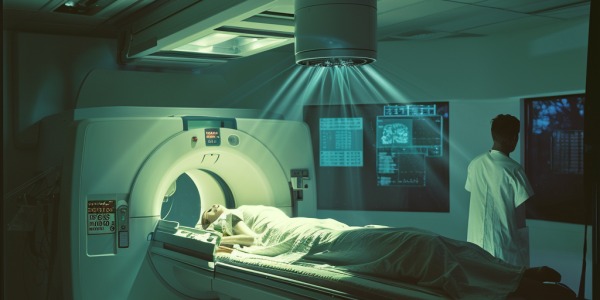November Marks Lung Cancer Awareness Month: A Call to Action for Prevention and Early Detection
November is Lung Cancer Awareness Month, highlighting the importance of understanding risk factors, recognizing symptoms, and promoting early detection. With over 80% of lung cancer deaths linked to smoking, awareness campaigns aim to educate the public about prevention strategies and the benefits of quitting. Join community events and support efforts to improve lung health and reduce stigma surrounding this deadly disease.
New Blood Test Detects Early Lung Damage in Cancer Patients on Targeted Therapy
A revolutionary blood test developed by researchers at Hadassah Medical Center detects early lung damage in cancer patients receiving antibody-drug conjugates (ADCs). This non-invasive method offers a timely alternative to traditional imaging, improving patient outcomes and safety by allowing for early intervention in cases of interstitial lung disease (ILD).
Lung Cancer Awareness Month 2024: Stronger Together in the Fight Against Lung Cancer
November marks Lung Cancer Awareness Month, a crucial time for raising awareness about lung cancer, promoting screenings, and supporting research initiatives. The 2024 theme, ‘Stronger Together: United for Lung Cancer Awareness,’ emphasizes community collaboration in combating this disease. Understanding risk factors and early symptoms is vital for improving survival rates. Join the movement to reduce stigma, advocate for research funding, and support those affected by lung cancer.
Breakthrough in Gene Editing: Targeted In Vivo Treatments Show Promise for Genetic Disorders
Recent advancements in gene-editing therapies are revolutionizing treatment for genetic disorders. Researchers at UT Southwestern have developed lipid nanoparticles for in vivo gene editing, showing promising results in correcting mutations linked to cystic fibrosis. This innovative approach could lead to one-time treatments that eliminate the need for complex procedures, offering hope for various genetic conditions.
Advancements in Non-Small-Cell Lung Cancer Management
Discover the latest advancements in non-small-cell lung cancer (NSCLC) management, including improved screening techniques, innovative surgical methods, and novel treatment options like targeted therapies and immunotherapy. Learn how these developments are enhancing patient outcomes and survival rates, and the importance of personalized medicine in NSCLC treatment.
World Lung Cancer Day: Importance of Awareness and Early Detection
World Lung Cancer Day, observed on August 1, highlights the importance of lung cancer awareness and education. This year, innovative methods like the five-second ‘diamond test’ are being promoted for early detection. Learn about the symptoms of lung cancer, including finger clubbing, and the significance of timely intervention to improve patient outcomes.
Study Shows IMRT Superior to 3D-CRT for Lung Cancer Treatment
Learn how intensity-modulated radiation therapy (IMRT) can benefit patients with non-small cell lung cancer (NSCLC) compared to 3D-conformal radiation therapy (3D-CRT). A recent study from The University of Texas MD Anderson Cancer Centre highlights the accuracy and reduced adverse effects of IMRT, recommending its standard use for locally advanced, unresectable NSCLC. Lead author Stephen Chun, M.D., emphasizes the significance of IMRT in improving treatment outcomes for patients with lung cancer.
Recent Updates from CROWN Trial: Lorlatinib in Treatment-Naïve Patients with Advanced ALK+ NSCLC
Learn about the recent updates from the CROWN trial on lorlatinib in treatment-naïve patients with advanced ALK+ NSCLC. Expert perspectives from The Oncology Brothers and Joshua K. Sabari, MD, shed light on the efficacy of lorlatinib and its potential as a groundbreaking treatment option for this specific patient population. Discover the promising outcomes and favorable response rates observed, emphasizing the importance of early intervention with lorlatinib in managing advanced ALK+ NSCLC.
Nanoparticle Treatment for Skin and Lung Fibrosis Shows Promise in UTEP Studies
Pharmacy researchers at The University of Texas at El Paso have developed a nanoparticle treatment for skin and lung fibrosis, addressing the severe damage caused by these conditions. The research, led by Dr. Md Nurunnabi, offers hope for more effective and safer treatments in the future, especially in light of the impact of fibrosis observed during the COVID-19 pandemic. This groundbreaking work showcases the potential of nanotechnology in treating complex medical conditions and represents a significant advancement in the field of pharmacy.
Innovative Device Developed for Gene Therapy Delivery in Lung Diseases
Oregon State University researchers have developed a groundbreaking device for improving gene therapy in patients with inherited lung diseases like cystic fibrosis. The innovative microfluidic aerosolization platform aims to revolutionize gene therapy treatments by addressing the limitations of current nebulization techniques.










